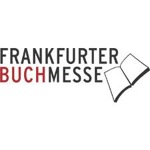 From an AFP Article by Richard Carter:
From an AFP Article by Richard Carter:
But talk of the “ebook” that has dominated the Frankfurt Book Fair in recent years has given way in 2010 to excited chatter about the so-called “enhanced ebook”, a mixture of the traditional book, audio, video and game.
“In five years, books will be more often crossmedia products: with embedded sound, animated pictures, Internet links and … possibly a gaming component, like alternative reality games,” said Juliane Schulze, from peacefulfish, a consultancy.
Some of the book world’s most celebrated names are already embracing the new format.
Ken Follett, one of the industry’s hottest authors, is expected to present a “multimedia-enhanced” version of his bestseller “The Pillars of the Earth” at this year’s fair.
You can access the complete AFP article here. If you’re interested in taking a look at some enhanced e-books, Vook provides books enhanced with video (interviews, behind the scenes footage, cooking demos, etc.)
Via Resource Shelf

































It depends a lot on what is meant by enhanced eBooks.
Does it mean MultiMedia forming part of the story telling ? part of the narrative ? or does it mean bits of MultiMedia bolted on as reference ?
I have no doubt that such a thing as an ‘enhanced eBook”, where the MM is part of the narrative will appear as part of the reading experience one day. New ideas and new ways of telling stories are always open to the imagination.
But it it also seems clear to me that this is a completely new and different product/format than what we conventionally consider as a “book/story” and will be a tiny part of the mainstream experience.
If we are talking about bolting on bits of MultiMedia to the eBook, then yes of course this is inevitable and I have always felt this will a very attractive ‘added value’ element of marketing writer’s works to younger generation readers as they mature through the ‘reading’ experience. Interviews, excerpts, images of original manuscripts etc.
Download sizes of eBooks are tiny. Adding a few megabytes of MM would, for someone like me, make it very attractive. I have a lot of books here where I would love to be able to view comments by the author, or hear them tell how they came to write the book etc etc.
Enhanced Ebooks are the Director’s Cut Special Expensive Edition version of the Ebook – some people might like it, but most people just want to watch the movie…
Screen books tend toward enhanced visual display as augmented by sound and video. Print books are limited to fixed, un-paced display. In this contrast screen books can assimilate the legacy role of movies.
There is an opportunity for book works to assimilate the movie rather than a more familiar movie assimilation of a traditional book. However that transaction opens a different future for the screen book and probably accentuates future book prospects of both print and screen.
Authors, publisher and fans can already create enhanced books in a companion format by adding all the pictures, video, music and maps that can’t go on the printed page to the book’s profile on http://www.bookdrum.com.
No! No! No!
I don’t want links, games or videos to interrupt the world I’ve created in my imagination from the words written by the author.
I know this is coming, but I’m hoping…REALLY HOPING…that there will be an enhanced edition and an “un-enhanced” edition available.
There is always the suspicion that fans of screen reading have no idea of the nature of book reading and are the least reliable sources for projections of the future of the book. The constraints of print are its attributes for transmitting books and we do not evermore desire automated emendations of meaning. Book reading is not intended to addict us to endless pop-ups.
Real book reading is also not intended to addict us to a consumerist agenda based on format obsolescence. The rush to the latest Kindle 1, Kindle 2, Kindle 3, i-Pad 1 and so on, always discarding the previous device, is a distraction from attentive reading and disruptive of library building. In the print environment small books and large books, cheap and pricy, visual and text formats have all proven sustainable together.
And then there is the hubris of screen reading; all the books, all the time, instantly as if that star field will explain everything. The displeasure over constraints of DRM as if the constraints of print; one language, one font size, one title per device, has proven a failed transmission medium. And then there is presumption of print super-cession and digital culture ascendance all based on the most ephemeral medium of the screen.
What can be a more productive stance? Let’s consider the suggestion that print and screen reading are interdependent and each, self-authenticating print and self-indexing screen, will continue to advance the future of the book together .